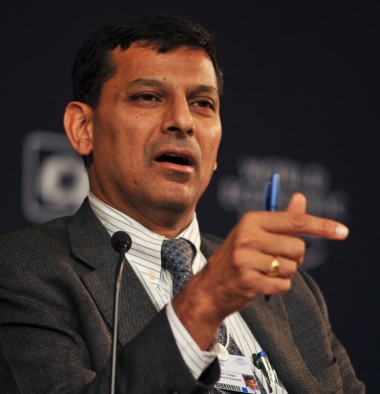LSE alumnus Siddharth Ramalingam asks whether RBI Governor Raghuram Rajan will retain his current market appeal.
Much of the positivity surrounding Dr Raghuram Rajan is being ascribed to the ‘Rajan effect’. He certainly has the pedigree—he studied at top Indian and international institutions; was the chief economist of the International Monetary Fund; was prescient of the financial crisis; and has authored what some might say is the authoritative book on what ails the financial sector. Rajan is also good at engaging the media and is widely perceived as understanding how global markets work. Not surprisingly, there was much cheer when his appointment as the twenty-third governor of the Reserve Bank of India was announced. But it remains to be seen whether Rajan will survive his tenure as the chief of the central bank with this reputation intact. A few months into his new job, it is worth reviewing what he has done right, and what has simply worked in his favour.
Although Rajan stated quite clearly in his first speech as the governor that his job was about hard decisions, not popular ones, few believed that he would follow through and raise interest rates as quickly as he has (if at all). Now that the interest rate has been raised, markets seem to have factored in at least one more interest rate hike without much fuss. While a case for further interest rate hikes can be made, it is surprising to see the market assume that a further hike under Rajan’s watch is not a bad thing. No doubt, Rajan enjoys unprecedented market credibility, and is saying things the right way.
Popular opinion also holds that the ‘Rajan effect’ played a significant role in the recovery of the rupee over the last few weeks. Arvind Subramanian clearly explains how this is far from the truth. While it is true that there was an improvement in the rupee the day Rajan took charge, and that the rupee has been on an upward trajectory since, the reasons for the rupee’s recovery are far more complex.
As Subramanian points out, external events drove the rise of the rupee. It is also now well known that one of the main contributors to the rupee’s decline was an external event—the US Federal Reserve announcement that it could start winding down its monetary stimulus programme earlier than previously expected. That this is the case is borne out by the rupee’s recovery since August, when doubts regarding the tapering of the Fed’s stimulus eased. Further testament to this logic is the fact that the currencies of the five major emerging markets exhibit a similar trend. There really isn’t much Rajan could have done to significantly alter how the rupee fared in the weeks after he took office.
Rajan’s ascent to the helm of the central bank could not have been worse in terms of timing—he faces a weakened rupee, challenging macroeconomic conditions, faltering domestic growth, and a profligate government in election mode. For now, it would be apt for Rajan to recall Warren Buffett’s quote: “when a management with a reputation for brilliance tackles a business with a reputation for bad economics, it is the reputation of the business that remains intact.” It is likely that the ‘Rajan effect’ will fade over time, but there is still hope that the new RBI governor will build a legacy for himself that will surpass his current image.
About the Author
Siddharth Ramalingam is Senior Vice President at IDFC and Director, The Minds Foundation. He completed an MSc in Political Theory at LSE in 2007. The opinions expressed in this post are personal.








